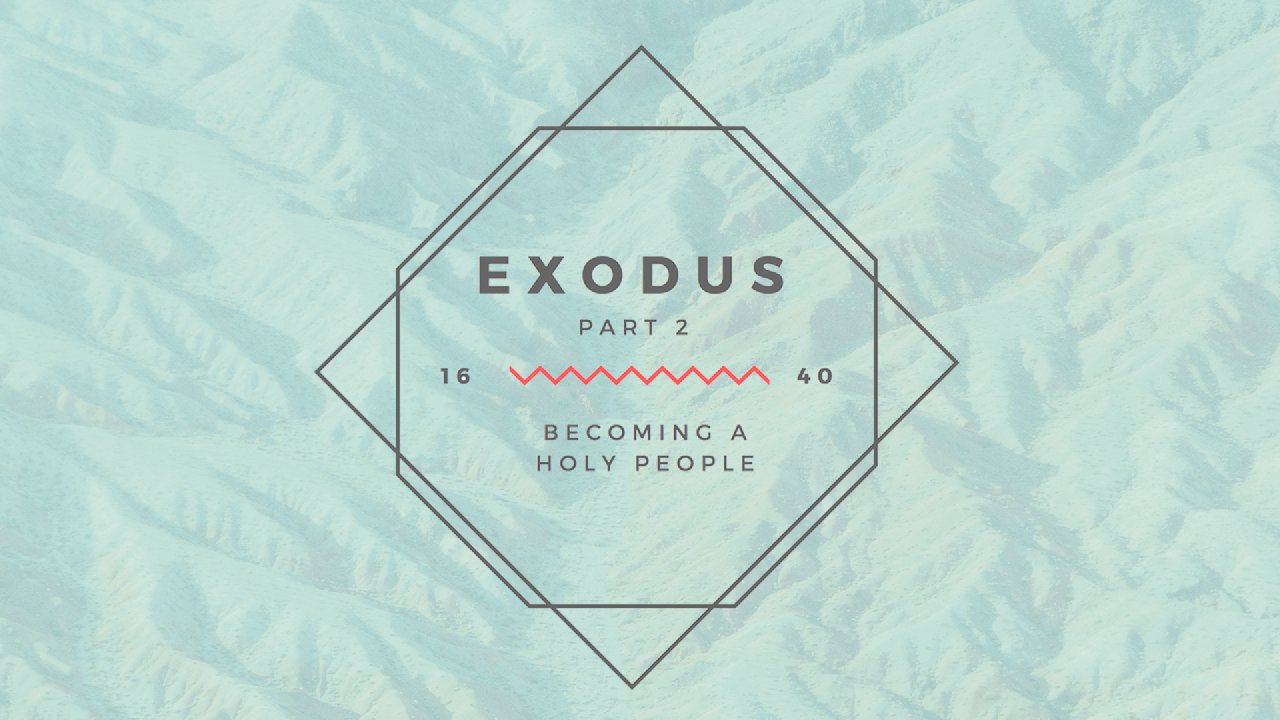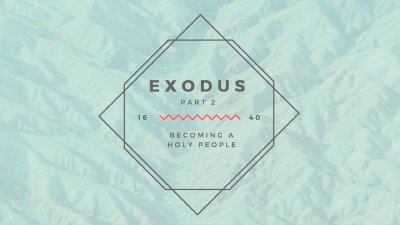Title: Coveting: Pay Attention to Your Desires
Passage: Exodus 20:17
Summary: Proverbs 30:15 // “The leech has two daughters; ‘Give’ and ‘Give,’ they cry. Three things are never satisfied; four never say, ‘Enough’: Sheol, the barren womb, the land never satisfied with water, and the fire that never says, ‘Enough.’” This week we will look at the tenth commandment, “You shall not covet.” Many have called this the root of all other covenantal infractions and there is perhaps no more important heart issue to give our attention to that that of coveting. Join us this week as we look at what the command means, why breaking it is devastating to the individual as well as the community, and how to guard our hearts against it by God’s grace.
Outline:
Definition :: Coveting = an inordinate desire for something that is not ours
The Relationship between Command #10 and Command #1
The Supreme Issue of the Heart and the Radical Call to Vigilance
What Coveting Does:
:: Leads to all other sin
:: Breaks relationship with God and with others
:: Destroys community
:: Causes us to waste our lives on the wrong things
:: Prohibits us from enjoying God’s gifts
How to Discern Covetousness: Q’s we must ask ourselves about our desires
Fighting Covetousness :: How to Cultivate a Vision for Glory
Discussion Q’s:
1. What causes you to be most discontent?
2. What do you crave most in this life?
3. Does the object(s) of your desire have any hope of lasting?
4. What is your attitude towards others who possess what you don’t?
5. Do you spend more time thinking about the world or the kingdom of God? What are you willing to sacrifice more for?
6. How are you cultivating a vision for God’s glory?

April 22nd, 2018
Exodus 20:17
April 22, 2018 • Pastor Josh Kee
June 3rd, 2018
June 3, 2018 • Pastor Phil Burggraff
Passage: Exodus 40 Theme: God dwells with his holy people What we learn about God from the end of Exodus: • God immanently resides • God transcendently abides • God providentially guides What we learn about us in contrast to Israel from the end of Exodus: • We permanently display God’s glory. • We continually access God's presence. • We confidently walk by God’s guidance. Main Idea: As God’s holy people, we possess and reflect God’s presence individually and corporately. Application Questions: 1. How is it that one receives God’s presence in their lives today? Can we lose God’s presence in our lives? 2. Read Exodus 34:29–35 and 2 Corinthians 3:12-18. What contrast does Paul make between Moses’s display of God’s glory and the way God’s glory is displayed in the lives of believers? In what ways is this comforting to you? What applications does Paul make for us in 2 Cor. 4? 3. Compare and contrast the presence and worship of God in the tabernacle with his presence and worship in the church today. 4. How does the knowledge that God guides his children give you confidence to approach life?
May 27th, 2018
May 27, 2018 • Pastor Josh Kee
Passage: Exodus 34 Title: God’s Glory Revealed Through Mercy Summary: This week we will look at perhaps the most significant passage in Scripture in regards to God’s relationship with mankind. Join us as we stare into one of the most glorious statements ever made by God, asking ourselves where our hope finds its foundation and where our worship finds it source. Outline: I. Moses’s Request (33:18-23) — “Show me your glory" II. God Reveals His Glory (34:1-7) — Proclaims His name a) God’s Glory is His Character (vv. 6-7) b) God’s character is the basis of His covenant (vv. 1-5) c) God’s character is affirmed in five statements (vv. 6-7) d) God is holy and will not pardon the wicked (v. 7) III. Moses’s Prayer (34:8-9) — “Go with us and undergird a stiff-necked people" IV. God’s Response (34:10-28) — “I will make a covenant with you" V. Moses speaks to the people (34:29-35) — The glory of the word of the LORD Questions: 1. What do verses 6-7 reveal about God’s character? 2. What is the basis of your hope as a Christian? Are you experiencing hope? 3. What is the basis of your worship as a Christian? Do you struggle to worship God? Why? 4. Are you trusting anything besides God’s character, promises, and faithfulness for your security? What else are you trusting? 5. Is your joy rooted in God’s mercy toward you? Are you enjoying God’s mercy toward you? Are you assuming God will be merciful toward you without turning to him? 6. If you have received God‘s mercy, how quick are you to extend that mercy to others who need it in your life?
May 20th, 2018
May 20, 2018 • Pastor Phil Burggraff
Passage: Exodus 32–33 Theme: The Golden Calf: Israel’s Rebellion and God’s Response Basic Movements of the Story: • Rebellion (32:1–29): People Create worship according to their own design rather than God’s plan • Mediation (32:30–33:17): An innocent one pleads on the people’s behalf for God to be merciful • Renewal (33:18–23): God chooses to act out of his goodness and grace to enter into relationship again. Main Idea: God responds to his mediator by demonstrating his goodness to rebels who deserve his wrath. Application Questions: 1. Look at Exodus 32:1–8. From the text, describe what sin(s) the people are committing. What commands are they breaking? What does this indicate about their relationship to God? 2. Why do we rebel against God when he has clearly worked to save us? 3. Compare and contrast the mediation that Moses accomplishes in this text with what Christ has done for those of us who have placed our faith and trust in him. What NT passages describe Christ’s work in this way? 4. What does this story teach us about God and how he relates to us?




